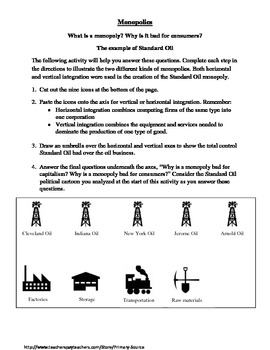The Legacy Of John D. Rockefeller: A Comprehensive Guide

Introduction to John D. Rockefeller
John D. Rockefeller is a name synonymous with the oil industry and business dominance. As the founder of Standard Oil, he revolutionized how oil was produced, refined, and marketed. His strategies not only created one of the first monopolies in American history but also laid the foundation for modern corporate practices. This guide will explore Rockefeller's impact on the oil industry, the rise of Standard Oil, the implications of antitrust laws, and the lessons that contemporary businesses can learn from his practices.
:max_bytes(150000):strip_icc()/history-gender-wage-gap-america-5074898_sketch-455ef27d4b304765ba4830023fed50bb.jpg)
The Rise of Standard Oil
Standard Oil was founded in 1870, marking the beginning of a new era in the oil industry. Rockefeller's keen insights into market dynamics enabled him to dominate the industry.
One notable strategy was his focus on efficiency. He invested in refining technologies that reduced costs and improved output. For instance, by employing vertical integration, Rockefeller controlled every aspect of the oil supply chain, from production to distribution. This allowed him to lower prices while increasing profits.
Additionally, he utilized aggressive tactics to outmaneuver competitors. For example, he often offered rebates to railroads to secure lower shipping costs. This practice not only increased his market share but also forced rivals out of business.
Through these strategies, Standard Oil grew to control over 90% of U.S. oil refining by the early 1900s, showcasing Rockefeller's unparalleled business acumen.
Monopoly and Market Control
The concept of monopoly is critical to understanding Standard Oil's dominance. A monopoly occurs when a single company or entity controls a significant portion of a market, limiting competition.
Rockefeller's monopoly over the oil industry had profound implications. By controlling supply, he could dictate prices, often driving them down to eliminate competition. Once rivals were out of the picture, he would raise prices again, maximizing profits.
For instance, during the 1880s, Rockefeller slashed oil prices to levels that forced competitors to capitulate. This tactic not only solidified his market control but also had a lasting impact on consumer prices and choices in the oil sector.
However, such practices drew scrutiny and paved the way for regulatory changes that would reshape the business landscape.

Impact of Antitrust Laws
Rockefeller's monopoly eventually led to significant legal challenges. The U.S. government filed a landmark antitrust case against Standard Oil in 1906, culminating in a 1911 Supreme Court decision that deemed the company an illegal monopoly.
The ruling mandated the breakup of Standard Oil into several smaller companies. This decision marked a turning point in U.S. business law, highlighting the need for regulatory frameworks to curb monopolistic practices.
The consequences of antitrust laws extended beyond Standard Oil. They established a precedent for future business regulations, emphasizing corporate ethics and fair competition. Modern businesses must now navigate a complex regulatory environment shaped by Rockefeller's legacy.
Lessons from Rockefeller's Business Practices
Despite the controversies surrounding his methods, Rockefeller's business strategies offer valuable lessons for contemporary businesses.
One key lesson is the importance of efficiency and innovation. His focus on refining processes and vertical integration can inspire modern businesses to seek operational efficiencies and cost reductions.
Moreover, understanding market dynamics is crucial. Rockefeller's ability to analyze market conditions and respond strategically is a skill that remains relevant today. Businesses can thrive by adapting to changes and anticipating consumer needs.
However, Rockefeller's practices also serve as a cautionary tale about ethics in business. While aggressive strategies can yield short-term success, ethical considerations are essential for long-term sustainability. Companies today must balance profit motives with social responsibility to build trust with consumers.
Conclusion
John D. Rockefeller's legacy is a complex tapestry of innovation, market control, and regulatory evolution. His strategies reshaped the oil industry and influenced modern business practices, highlighting the critical role of antitrust laws and corporate ethics.
As we reflect on his impact, it’s essential for today’s businesses to learn from both his successes and failures. By embracing efficiency, understanding market dynamics, and prioritizing ethical practices, companies can navigate the challenges of the modern economy.
For further insights into business practices and the influence of historical figures like Rockefeller, explore our related articles on corporate ethics and market strategies.